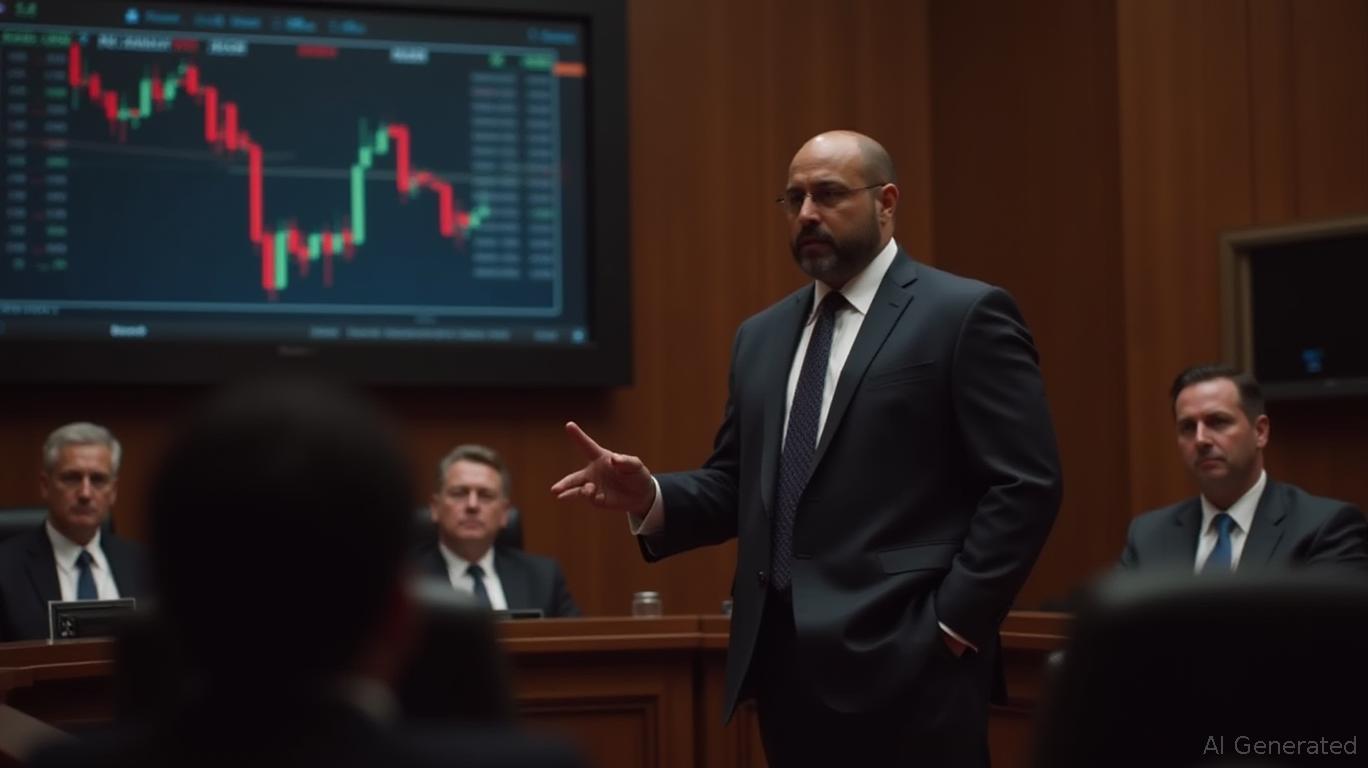Kalshi’s Federal Lawsuit Challenges CFTC Authority Amid Conflict With New York Sports Betting Prohibition
- Kalshi sues New York over sports betting ban, claiming CFTC's federal jurisdiction under the Supremacy Clause. - New York alleges Kalshi operates unlicensed contracts as "sports wagering," demanding compliance with state gambling laws. - Legal experts highlight federal courts' prior favor toward Kalshi, citing CFTC's 2020 DCM designation as regulatory shield. - Case could set precedent for state-federal regulatory conflicts, with Kalshi risking $50M+ annual revenue if banned in New York. - Mixed judicial
Kalshi, a prediction market platform registered with the CFTC, has initiated a federal lawsuit against the New York State Gaming Commission in an effort to halt the enforcement of the state's prohibition on its sports betting contracts. The company contends that the Commodity Futures Trading Commission (CFTC) has sole authority over derivatives trading under the Commodity Exchange Act, making New York's regulatory measures unconstitutional under the Supremacy Clause, as reported by a
The conflict arises from a cease-and-desist order issued by New York on October 24, which accused Kalshi of running an unauthorized mobile sports betting service. State officials classified Kalshi's offerings as "sports wagering" under local statutes, requiring the company to adhere to the same licensing, tax, and regulatory standards as conventional sportsbooks, according to

Legal analysts observe that Kalshi's tactic of initiating proceedings in federal court has proven advantageous in previous disputes. Daniel Wallach, an expert in gaming law, pointed out that this legal strategy shifts the focus to federal preemption rather than the contracts' legality. In comparable cases in Nevada and New Jersey, courts have issued preliminary injunctions in Kalshi's favor, determining that the CFTC's exclusive regulatory authority over swaps and futures overrides state laws, as referenced in a
The implications are significant for Kalshi, which projects that it could lose more than $50 million in annual revenue in New York if forced to discontinue its services. The company is also facing increasing regulatory scrutiny, with states such as Illinois and Arizona likely to adopt similar measures as New York. Wallach suggests that recent court decisions favoring state regulators, like Nevada's dismissal of Crypto.com's case, may encourage additional states to challenge prediction markets, as noted by Decrypt.
The New York gaming commission has yet to issue a public statement regarding the lawsuit but has reiterated its mandate to uphold state gambling regulations. The commission's cease-and-desist notice warned of "imminent civil penalties and fines" should Kalshi persist in offering sports event contracts, which the commission sees as undermining the state's regulated sports betting sector, according to Sports Betting Dime.
The resolution of this legal battle could influence the future relationship between state and federal authorities in the fast-changing prediction markets industry. With more than 1.2 million event contracts traded each year on CFTC-supervised platforms, the CFTC has established itself as a central authority in preventing inconsistent regulatory approaches, as highlighted by Coinotag.
Disclaimer: The content of this article solely reflects the author's opinion and does not represent the platform in any capacity. This article is not intended to serve as a reference for making investment decisions.
You may also like
Tech Industry Relieved as U.S.-China Agreement Temporarily Halts Rare Earth Export Restrictions
- U.S. and China agree to a one-year trade framework suspending key tariffs and rare earth export controls to ease tensions. - The deal avoids a 100% U.S. tariff on Chinese goods and delays China's rare earth restrictions critical to tech and defense sectors. - China resumes soybean purchases, benefiting U.S. farmers, while U.S. reduces fentanyl-related tariffs from 20% to 10%. - Success hinges on China's enforcement of rare earth policies and U.S. adherence to export controls, per analysts.

BCH Facing a Turning Point: Upward Drive Meets Key Resistance
- Bitcoin Cash (BCH) approaches $565.1 resistance with technical indicators and derivatives data signaling bullish momentum. - Whale activity and positive funding rates (0.0007%) suggest growing long positions, historically preceding BCH rallies. - A successful breakout could target $651, but failure risks retesting $542.3 support amid 3.5% price volatility. - Derivatives sentiment (1.14 long/short ratio) and expanding MACD histogram reinforce cautious optimism for near-term accumulation.

Bitcoin News Update: Crypto Whale’s Bold Leverage Strategy: Unbroken Winning Run Challenges Market Volatility
- A crypto whale (0xc2a) has achieved 14 consecutive profitable trades, amassing $320M in gains via leveraged BTC/ETH/SOL positions. - Its $366M ETH long position (5x leverage) shows $8.87M unrealized gains, contrasting with profit-taking by other whales like BTC OG. - The whale's $234M BTC exposure (2,041.54 BTC) and $114M 13x leveraged long highlight aggressive institutional-grade strategies in volatile markets. - Market uncertainty around Fed rate decisions and geopolitical risks sees traders split betw

Bitcoin News Update: U.S. and China Reach Trade Agreement, Preventing Tariff Increase and Calming Global Market Concerns
- U.S. and China agree to delay 100% tariffs and suspend rare earth export restrictions, easing global supply chain pressures. - The deal includes resuming U.S. soybean purchases and canceling "fentanyl tariffs," stabilizing bilateral trade ahead of Trump-Xi APEC meeting. - Cryptocurrency markets react with mixed signals, as Bitcoin rises 1.8% amid safe-haven demand, but a $11B whale opens a leveraged short risking $2.6M losses. - Analysts warn long-term success depends on resolving issues like Jimmy Lai's
